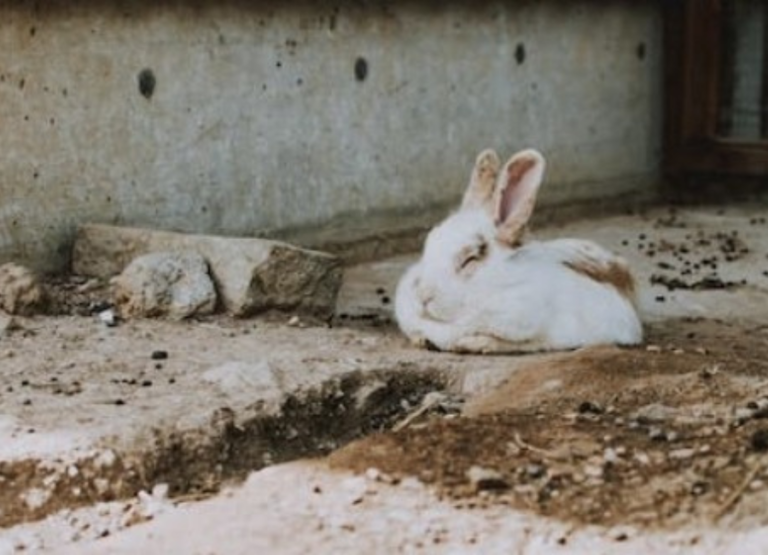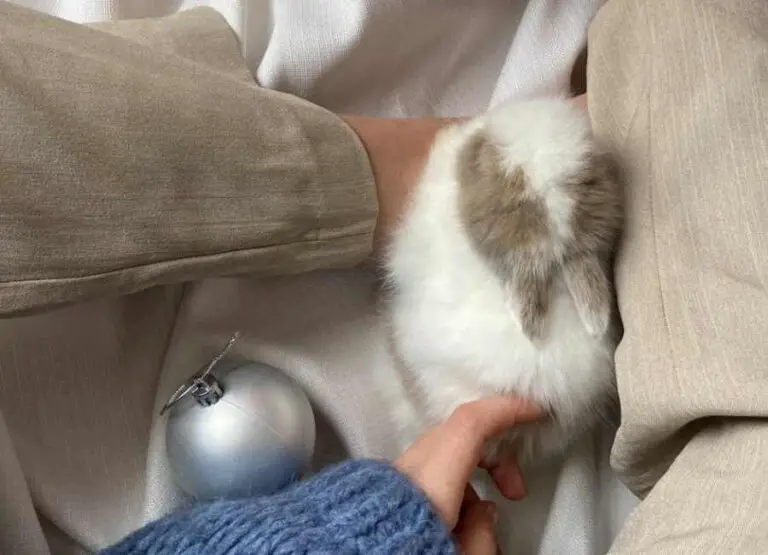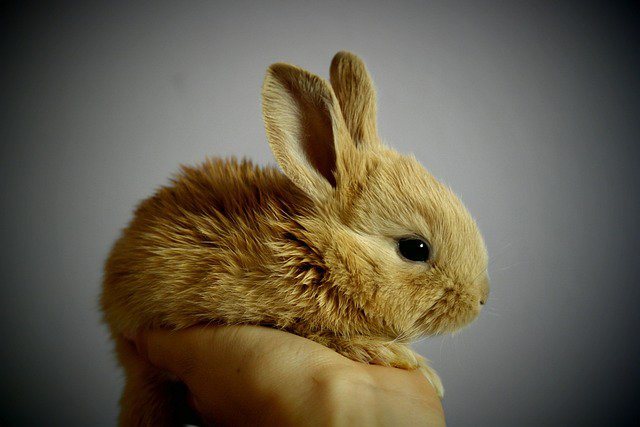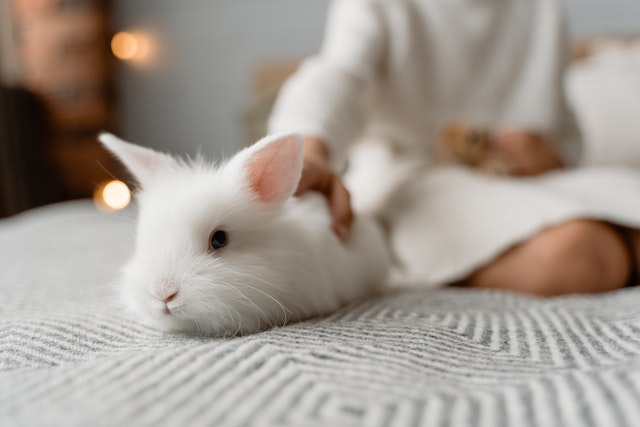11 Reasons For Your Rabbit Not Eating With Remedies
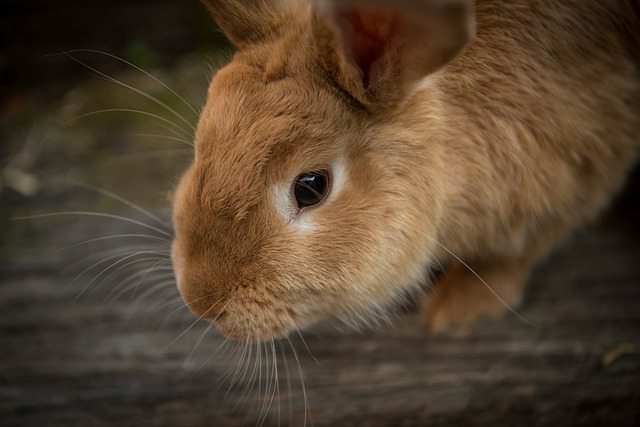
Are you worried about your rabbit not eating or sudden loss of appetite? Well, you’re not alone.
In this blog post, we’ll dive into the possible reasons why your rabbit might not be eating and share some tips to help get their appetite back on track.
So, let’s hop right in and get to the root of the issue!
How to Identify a Rabbit That is Not Eating
To identify a rabbit that is not eating as usual, observe its behavior closely. Look for signs such as a loss of appetite, reduced interest in food, or not finishing meals. Monitor their fecal output, as a decrease in quantity or changes in consistency can indicate a problem.
Additionally, check for any physical symptoms like weight loss, lethargy, or dental issues. If you notice any of these signs, it’s important to consult a veterinarian for a proper diagnosis and treatment.
Why is My Rabbit Not Eating?
Rabbits may stop eating for various reasons, including dental issues, gastrointestinal problems, stress, or a change in their environment.
It is important to monitor your rabbit’s behavior and consult a veterinarian if the lack of appetite persists.
Providing a balanced diet, ensuring dental health, and creating a stress-free environment can help encourage your rabbit to eat.
If your rabbit continues to refuse food, it is crucial to seek professional veterinary advice to determine and address the underlying cause.
Let’s dive deeper…
Reasons For Your Rabbit Not Eating
The following are some of the most common reasons why your rabbit is not eating:
1. Dental Issues
Dental issues are a common reason why rabbits may stop eating. The most common cause is overgrown teeth, which can result from a lack of wear due to a diet low in fiber or genetic factors. To fix this situation, it is important to provide your rabbit with a high-fiber diet of hay, fresh vegetables, and limited pellets.
Regular dental check-ups by a veterinarian experienced in rabbit dentistry are crucial to identifying and addressing any dental problems. In severe cases, dental procedures such as tooth filing or extractions may be necessary to alleviate pain and restore proper eating habits.
2. Gastrointestinal Stasis
Gastrointestinal stasis, also known as gastrointestinal stasis syndrome (GI stasis), is a common condition in rabbits that can cause a decrease in appetite.
It occurs when the normal movement of food through the digestive system slows down or stops. The main cause of GI stasis is often a lack of fiber in the diet, which can lead to a buildup of hair and food in the intestines.
To help your rabbit start eating again, it is important to address the underlying cause of the stasis. This can be done by providing a high-fiber diet, encouraging exercise, and ensuring access to fresh water. In severe cases, a veterinarian may need to intervene with medication or other treatments.
3. Stress or Anxiety
Stress or anxiety are common reasons why a rabbit may not be eating as usual. This can be caused by changes in their environment, such as a new home or loud noises. Additionally, illness, pain, or dental problems can also contribute to their decreased appetite.
To help your rabbit start eating again, it is important to create a calm and comfortable environment for them. Provide a quiet space, ensure they have fresh water and a balanced diet, and consult a veterinarian if the issue persists.
4. Internal or External Parasites
Internal or external parasites are one of the most common reasons why a rabbit may stop eating. These parasites, such as worms or fleas, can cause discomfort and affect the rabbit’s appetite. The presence of parasites in the rabbit’s digestive system or on its skin can lead to digestive issues, irritation, and overall discomfort, which can result in a decreased appetite.
To fix this situation and help the rabbit start eating again, it is essential to consult a veterinarian who can diagnose the specific parasite and prescribe appropriate medication or treatment to eliminate the parasites and alleviate the rabbit’s discomfort. Additionally, ensuring proper hygiene and cleanliness in the rabbit’s environment can help prevent re-infestation.
5. Changes in Diet
Changes in diet are one of the most common reasons why a rabbit is not eating as usual. This can be caused by introducing new foods too quickly or abruptly changing their diet. Such changes can disrupt their digestive system and lead to a loss of appetite.
To fix this situation, it is important to gradually introduce new foods and make dietary changes slowly. Providing a balanced diet with a variety of fresh hay, vegetables, and a limited amount of pellets can help stimulate your rabbit’s appetite and encourage them to start eating again.
6. Illness
Illness is one of the most common reasons why a rabbit may stop eating. Illnesses such as dental problems, gastrointestinal issues, or infections can cause pain or discomfort, leading to a loss of appetite. To address this, it is essential to take your rabbit to a veterinarian for a thorough examination and diagnosis.
Treatment options may include medication, dental work, or dietary changes. Providing a quiet, stress-free environment, offering fresh and palatable food, and hand-feeding if necessary can also help encourage your rabbit to start eating again.
Read more about common health conditions in rabbits.
7. Hairballs
Hairball is one of the most common reasons why a rabbit may stop eating. When rabbits groom themselves, they ingest fur, which can accumulate in their digestive system and form hairballs. These hairballs can cause discomfort and blockage, leading to a loss of appetite.
To fix this situation, you can provide your rabbit with plenty of fresh hay to encourage natural digestion and help move the hairballs through their system. Additionally, regular grooming can help minimize the amount of fur ingested. If the issue persists, it is important to consult a veterinarian for further guidance and treatment options.
8. Infection
Infection is one of the most common reasons why a rabbit may stop eating. These infections can be caused by bacteria, viruses, or parasites.
They can lead to symptoms such as fever, lethargy, and loss of appetite. To fix this situation and help your rabbit start eating again, it is important to consult a veterinarian for a proper diagnosis and treatment.
The veterinarian may prescribe antibiotics or other medications to treat the infection, and it is crucial to follow their instructions carefully. Additionally, providing a clean and comfortable environment for your rabbit can aid in their recovery.
9. Pain or Discomfort
Pain or discomfort is one of the most common reasons why a rabbit may stop eating. This can be caused by arthritis, dental problems, gastrointestinal issues, or other underlying health conditions. To fix the situation and help the rabbit start eating again, it is crucial to identify the cause of the pain or discomfort.
A visit to the veterinarian is recommended for a thorough examination and diagnosis. Treatment may involve pain management, dental work, medication, or dietary adjustments to alleviate the issue and encourage the rabbit to resume eating.
10. Environmental Factors
Environmental factors can significantly affect a rabbit’s eating habits. One common reason for a rabbit not eating is stress caused by changes in its environment, such as a new location or loud noises. These factors can disrupt their appetite and result in decreased food intake.
To fix this situation, it is important to create a calm and secure environment for the rabbits, ensuring they have a quiet, comfortable space with familiar surroundings. Additionally, providing fresh hay, vegetables, and water, along with regular exercise and mental stimulation, can help encourage the rabbit to start eating again.
11. Side Effects of Medications
Side effects of medications can be one of the common reasons why your rabbit is not eating. Certain medications may cause gastrointestinal disturbances, loss of appetite, or nausea in rabbits. This can result in a decreased interest in food and a reduced appetite.
To fix this situation and help your rabbit start eating again, consult with your veterinarian to determine if the medication is indeed causing the issue. They may suggest adjusting the dosage, changing the medication, or providing additional supportive care such as appetite stimulants or feeding supplements to encourage your rabbit to eat.
Read more about how to identify a sick rabbit.
What to Do If Your Rabbit Stops Eating
If your rabbit stops eating, it is important to take immediate action as it can be a sign of a serious health issue. Here is a practical step-by-step process of what to do if your rabbit stops eating:
1. Observe and Monitor: Start by closely observing your rabbit’s behavior and appetite. If you notice a significant decrease in food consumption or a complete refusal to eat, it is crucial to take action promptly.
2. Check for Obvious Causes: Check for any obvious causes that might be affecting your rabbit’s appetite. Ensure that the food you are offering is fresh, clean, and appropriate for rabbits. Check for any signs of dental problems, such as overgrown teeth or mouth sores, which can make eating painful for rabbits.
3. Assess General Health: Assess your rabbit’s overall health. Look for any signs of illness or discomfort, such as lethargy, changes in behavior, diarrhea, or abnormal droppings. If you notice any concerning symptoms, it is recommended to consult a veterinarian as soon as possible.
4. Offer Tempting Foods: Try offering a variety of fresh and tempting foods to stimulate your rabbit’s appetite. This can include fresh herbs like parsley or cilantro, leafy greens, or small pieces of fruit. Ensure that these foods are safe and appropriate for rabbits.
5. Encourage Hydration: Make sure your rabbit stays hydrated by providing fresh water at all times. If your rabbit is not drinking, you can try offering water-rich foods like cucumber or wetting their pellets to increase moisture intake.
6. Consider syringe feeding: If your rabbit is not eating at all, your veterinarian may recommend syringe feeding. This involves carefully feeding a specially formulated recovery food or a feeding formula designed for rabbits. Your veterinarian will provide instructions on how to do this safely and effectively.
7. Seek Veterinary Care: If your rabbit’s appetite does not improve within 24 hours or if you notice any other concerning symptoms, it is crucial to seek veterinary care. A veterinarian will be able to perform a thorough examination, diagnose any underlying health issues, and provide appropriate treatment.
8. Follow Veterinary Advice: Follow the advice and treatment plan provided by your veterinarian. This may include medication, dietary changes, or additional tests to determine the cause of your rabbit’s decreased appetite.
How to Prevent Loss of Appetite in Rabbits
To prevent loss of appetite in rabbits, it is important to provide a balanced and fresh diet consisting of hay, vegetables, and pellets.
Ensuring a clean and comfortable living environment is crucial, as stress can contribute to loss of appetite. Regular exercise and mental stimulation through toys and playtime can also help stimulate their appetite.
Monitoring their water intake and ensuring they have access to fresh water at all times is essential. If loss of appetite persists, it is important to consult a veterinarian for further evaluation and treatment.
Frequently Asked Questions
My rabbit has suddenly stopped eating, should I be worried?
It’s always a good idea to be concerned when your rabbit stops eating. Rabbits have delicate digestive systems, and a loss of appetite can be a sign of an underlying health issue. It’s best to consult with a veterinarian to determine the cause and appropriate treatment.
What are some common reasons why rabbits stop eating?
There could be several reasons why a rabbit might stop eating. It could be due to dental issues, gastrointestinal problems, stress, or even a change in their environment or routine. It’s important to identify the cause to provide the necessary care for your furry friend.
How can I encourage my rabbit to eat again?
Providing a comfortable and stress-free environment for your rabbit is crucial. Offer a variety of fresh, leafy greens, hay, and a small amount of pellets to entice them to eat. You can also try hand-feeding your rabbit their favorite treats to stimulate their appetite.
Should I force-feed my rabbits if they refuse to eat?
It is generally not recommended to force-feed your rabbit unless advised by a veterinarian. Force-feeding can cause stress and potentially lead to injury. Instead, focus on finding the underlying cause of their decreased appetite and seek professional advice.
How long can a rabbit go without eating before it becomes a concern?
Rabbits have a delicate digestive system, and it’s crucial for them to eat regularly. If your rabbit has not eaten for more than 12–24 hours, it’s best to consult with a veterinarian. Delayed or inadequate food intake can lead to serious health issues in rabbits.
Are there any home remedies I can try to get my rabbit to eat?
While it’s important to consult with a veterinarian, there are a few things you can try at home to encourage your rabbit to eat. Ensure their environment is quiet and comfortable, provide fresh water, offer their favorite foods, and try hand-feeding them small amounts of critical care food if recommended by your vet.
Conclusion
In conclusion, if your rabbit is not eating, it’s important to act quickly and seek veterinary advice.
Remember to provide a balanced diet, ensure a stress-free environment, and monitor any changes in behavior.
By taking these steps, you can help your furry friend regain their appetite and stay healthy.

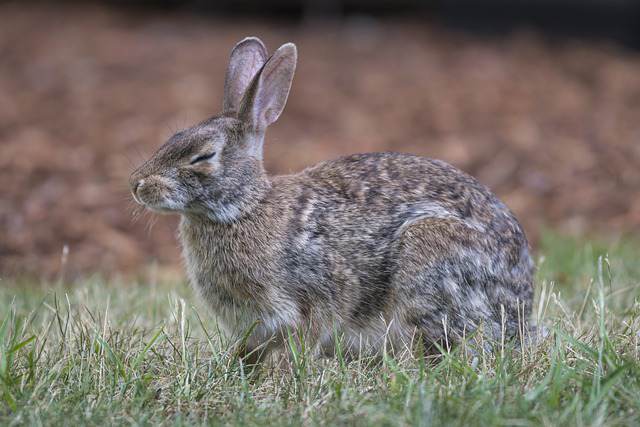
![12 Abnormal Rabbit Behaviour [Meaning & Tips] Abnormal Rabbit Behaviour](https://petcreeks.com/wp-content/uploads/2023/10/pexels-magda-ehlers-9348913.jpg)
